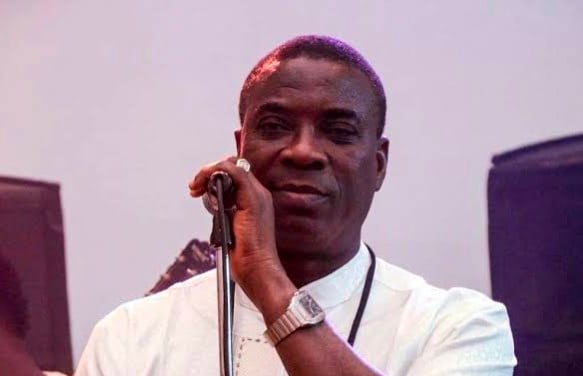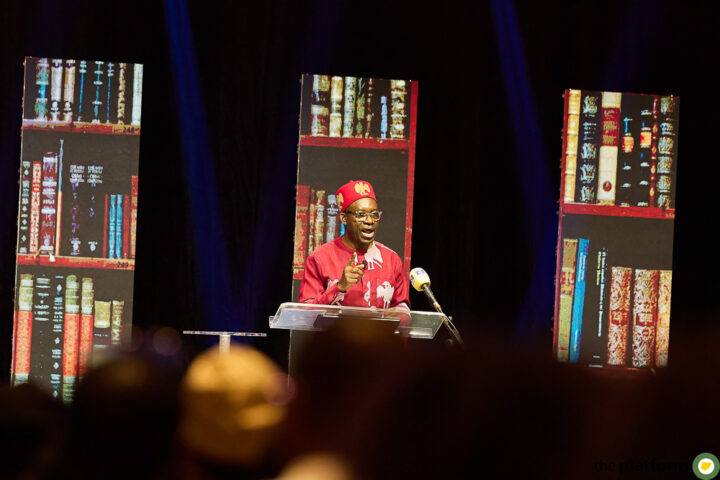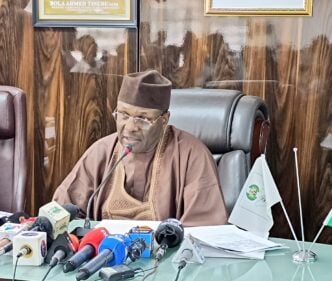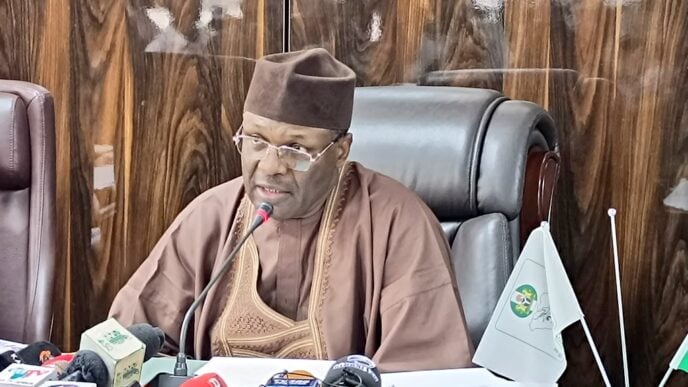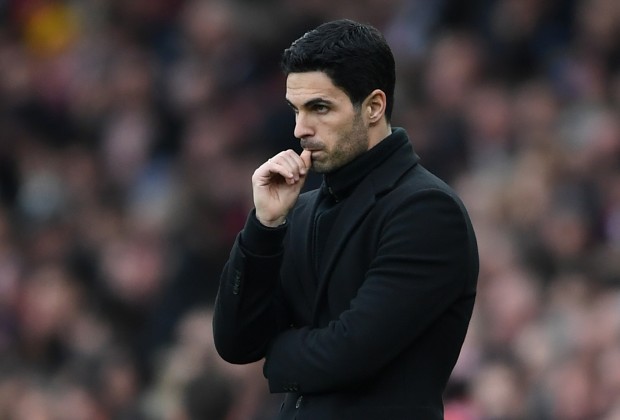Wasiu Ayinde, the Fuji singer fondly called Kwam 1,
It is commonplace hearing or seeing state officials at all levels say the following, whenever and wherever the opportunity presents itself: “I am determined to make Nigeria great and become the envy of the world.”
But until these same officials travel abroad at the slightest chance, using state funds, or send their wards abroad for academic purposes and then proudly display it on social media, or willfully embark on medical tourism abroad on state funds, or organise retreats in the UAE and Rwanda, or talk proudly in dollars instead naira, they cannot be seen through the insincerity of their quest to make Nigeria better.
Nonetheless, nature always has a way of presenting opportunities to the state officials to live up to their public vow to “make Nigeria great”. But it is either they are never prepared for the opportunities or they never wish the opportunities come upon them because failure to react appropriately is always the common denominator.
Take the turnaround opportunity that came on August 5 at the local wing of the Nnamdi Azikiwe International Airport, Abuja where a national embarrassment had unfolded before the world glare. The individual at the center of the embarrassment is a notable musician, Wasiu Ayinde, known to his fans as KWAM 1 or K1 de Ultimate.
Advertisement
He had capitalised on his status (some say his closeness to President Bola Tinubu) to disrupt a scheduled flight after he infringed on an aviation rule for passengers and was promptly disembarked by officials of the airline he was to board to Lagos.
Rather than being arrested and detained for questioning as he refused to accept his fate and stayed put on the tarmac as an unauthorised person, the security officials only continuously pleaded with him to leave.
He had made a huge show of his petulance and apparently was determined not to leave the scene until the already closed aircraft door was reopened and he was allowed to embark. It took a near-decapitating experience as the aircraft taxied hurriedly to make him give up on his wild goose chase.
Advertisement
For the notable position occupied by the musician in Nigeria, the state should have acted swiftly to treat his action as terrorism, regardless that it was a first offence, as it would have obtained elsewhere, even in neighbouring Chad. Niger and Benin.
Instead, he was allowed to go home as a free man, whereupon he even showed a lack of remorse for his action by engaging in a musical show only hours after and still said on stage that the odium he attracted to Nigeria at the airport was “a small incident”.
The Federal Civil Aviation Authority (FCAA) had handed him a six-month no-fly suspension, after which he belatedly broadcast an apology for his action, although his media team had earlier released a statement denying that he infringed on the rule and was only being maligned for no reason.
His arrest and prosecution by the state would not only have shown that the law is no respecter of any one, but it would also have sent signals around the world that contrary to the negative narration about Nigeria is exaggerated.
Advertisement
As it is, it appears his influential status saved him from being used to serve as a deterrent to would-be law breakers, especially in the aviation sector where obedience to rules carries life-saving implications.
It is also instructive that some state officials who would spare no opportunity – no matter how slight – to vow to “make Nigeria great” have kept mute, especially as the Federal Government suddenly announced on Wednesday that he has been pardoned, translating to him being freed from prosecution, even as his offence was still being investigated.
Suffices it that it is really not about some of the individuals at the top in Nigeria always carrying on like they are above the law. Rather, it is about some other individuals who actively play the enabling role for whatever reasons.
The musician in question clearly and deliberately infringed on the aviation rule. He was then seen being prevailed upon respectfully by designated officials to comply with the rule. Yet he not only disrespectfully attempted to flout the rule but he also assaulted the officials.
Advertisement
He did not stop at that: he constituted himself into a nuisance on the airport tarmac. Had Nigeria not been permissive, especially with regard to the so-called privileged citizens, he would by now, almost two weeks after the incident, still be with the airport security answering questions.
But curiously still, some individuals at the lower rung of the country have since jumped at the defence of the musician, saying he was “set up to be victimised” and that they did “not really see any offence” that he had committed. Therefore, they insisted he “has no case to answer”.
Advertisement
A cursory piercing into this group of people revealed that the majority were either ignorant of the implications involved in an attempt at hostage taking and they were just emotive. For surely, the large number of them being fans of the musician, they did not consider a heavy sanction that could be hammered on Nigeria by the International Civil Aviation Organisation (ICAO) which could also declare the Abuja airport unsafe for travellers, as well as the economic implication of being so declared.
Why Nigeria often misses opportunities to show the world that the country has evolved as it is expected of it as a giant in Africa should be troubling indeed.
Advertisement
Little wonder, a similar infringement on rules occurred only a few days after the August 5 incident as a passenger on board an Uyo-Lagos flight, Comfort Emmanson, slapped a hostess who had cautioned the former on an in-flight rule.
The unruly lady would soon after be dragged from the aircraft to the tarmac in a crude manner that suggested officials of the airline were ill-trained on the best way to handle such a situation. She was also charged to court and later remanded at the Kirikiri Prison in Lagos, after being banned from flying on the aircraft again.
Advertisement
But although the musician’s offence carries more weight than the Lagos-bound lady’s, he has been a free man ever since he committed the offence, despite calls for his arrest and prosecution. It is the double standard for which the Nigerian authorities are renowned. It was obviously to save face that the FG, while pardoning the musician, extended same gesture to Emmanson.
Since August 5 when the avoidable incident involving the musician occurred, the following questions have become a common denominator among Nigerians: “Can he obstruct a scheduled flight at JFK airport in the US?”, “Can he dare it at Heathrow airport in the UK?”, “Can he try it at Toronto airport in Canada?”, “Can he attempt it at Kotoka airport in Ghana?”, “Can he even try it at ordinary Cotonou airport?”
The answer to the questions is very simple: He can’t try or attempt what he tried or attempted at Abuja in those places listed and not pay heavily for his action – no matter who or what he is.
Why then did he try or attempt it at Abuja airport and got only a slap on his wrist as though his willful indiscretion did not attract negative attention to Nigeria? It is not all matters that drag us backward that we should take to God to help us resolve.
Certainly not this matter that calls for using the musician to show the world that, indeed, we are a civilised people and that no one here is above the law. We really should not have missed this best chance to get things right.
Views expressed by contributors are strictly personal and not of TheCable.

